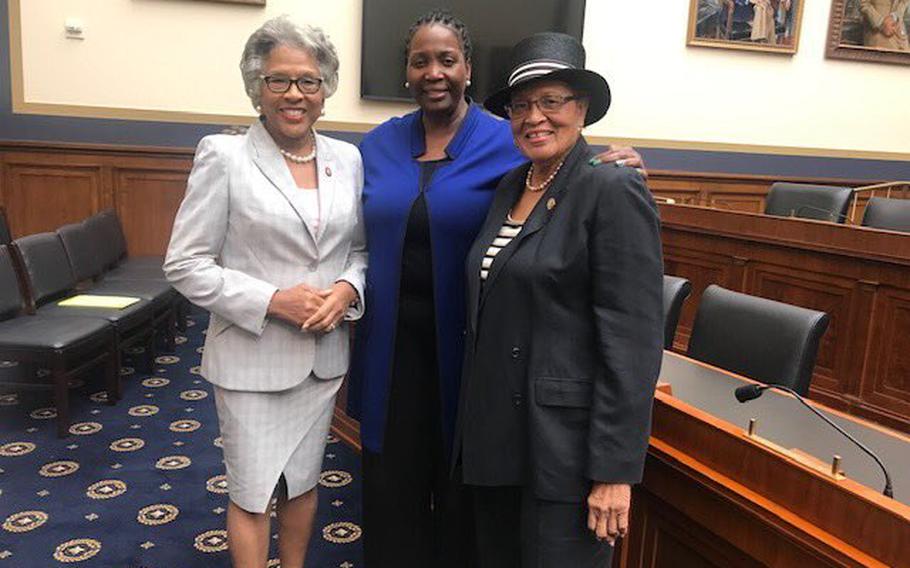
Lisa Cook serving on the Financial Services Subcommittee on Diversity and Inclusion in 2019. The economist Lisa Cook was confirmed Tuesday as the first Black woman on the Federal Reserve Board in a historic moment for the central bank as it tries to stabilize a recovery that serves all Americans. ()
WASHINGTON — The economist Lisa Cook was confirmed Tuesday as the first Black woman on the Federal Reserve Board in a historic moment for the central bank as it tries to stabilize a recovery that serves all Americans.
Cook’s confirmation came in a 50-50 vote in the Senate, with Vice President Harris issuing the tie-breaking vote. No Republicans voted for Cook, and Democrats, who hold a razor-thin majority, had delayed moving forward on her nomination until they could assemble all 50 of their members to vote for her.
Cook is among the country’s preeminent economists and teaches at Michigan State University. Her research has focused on macroeconomics, economic history, international finance and innovation, particularly on how hate-related violence has harmed U.S. economic growth. Her work has analyzed how patent records show that the riots, lynchings and Jim Crow laws that targeted African American communities in the late 1800s and early 1900s hurt Black people’s ability to pursue inventions and discoveries at the time.
“If there is something that impedes the rate of arrival of ideas, you’re going to slow down the economy. It’s not just for that period. And it’s not just for Black people. This is a cautionary tale for all economies,” Cook said on the Planet Money podcast in 2020.
Cook also worked on the White House’s Council of Economic Advisers during the Obama administration and has held visiting appointments at the National Bureau of Economic Research, the University of Michigan, and the Federal Reserve Banks of New York, Chicago, Minneapolis and Philadelphia.
President Joe Biden has sought to assemble the most diverse Fed board in the agency’s 108-year history. And Fed experts say the package of nominees the White House has named recently goes a long way to fulfilling Biden’s promise to make the Fed more reflective of the country it serves.
Meanwhile, Fed policymakers are contending with the highest inflation in 40 years, and the central bank faces the crucial test of reining in inflation without jeopardizing the labor market and overall economic recovery. Fed officials also must use their broad-based tools to sustain a recovery that lifts all Americans — without declaring victory before the economy’s most marginalized workers and households have a chance to join that recovery.
Biden also has nominated the economist Philip Jefferson, the vice president for academic affairs and dean of faculty at Davidson College, to a vacant seat on the Fed board. If he is also confirmed, it would mark the first time the Fed board has included more than one Black governor at a time.